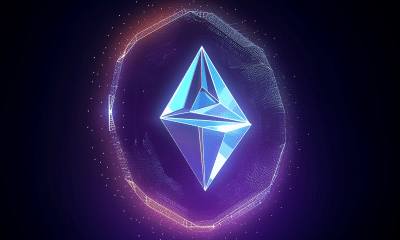Ethereum
Ethereum 2.0 overcomes all the bottlenecks: Vitalik Buterin

Ethereum‘s Co-founder Vitalik Buterin featured on Chain Reaction podcast to discuss one of the new proposals, while highlighting how it would impact the ecosystem upon deployment. Buterin stressed that the new Sharding proposal is intended to improve the experience for the ecosystem’s validators. He added,
“It really feels like we’re finally overcoming of all of the bottlenecks that we’ve had all along – privacy preserving applications, on-chain scalability, optimistic roll-up, Sharding and proof of stake.”
According to the Buterin’s calculations, the network will be able to reach and handle 100,000 transactions per second at its high point and a few thousand at its low point, within the next year. The ecosystem is expected to handle such network loads with the help of Shard blocks, which will no longer need any decentralized exchanges as a medium to facilitate paying transaction fees across Shards.
Diving into more detail, Buterin highlighted two types of cross-shard communications: asynchronous and synchronous. Traditionally, the network follows asynchronous communications. However, he claimed that there are ways to fuse the two methods, while using synchronous features whenever needed.
An important point to note here is that once Ethereum 2.0’s transition is complete, other dependent projects including MakerDAO will be automatically tranferred on to the updated network. However, Buterin did not address whether external intervention will be required. He guaranteed,
“Even if you do nothing, your app will be safe and continue living and eventually will live inside Ethereum 2.0″
Concluding the interview, Buterin highlighted that the Ethereum ecosystem has challenged the status quo that says “proof of work and non-charted blockchains are the only way to do things.” The Ethereum community’s role is to just deliver, he said.

